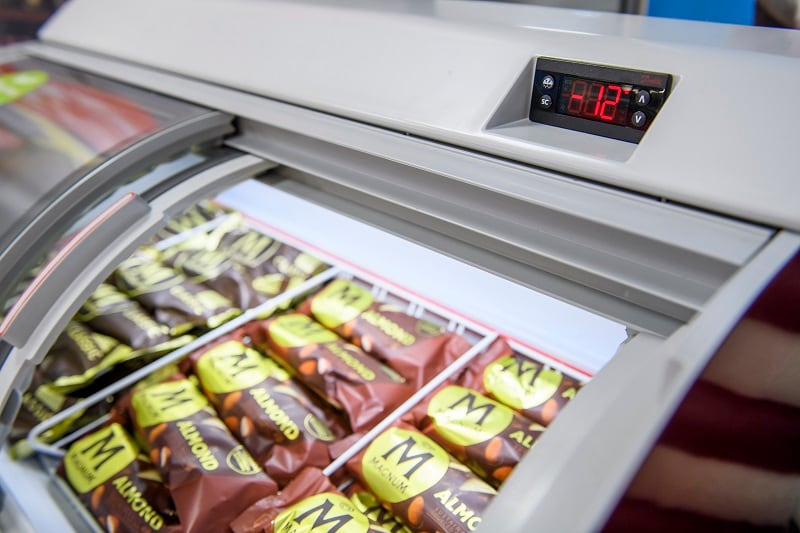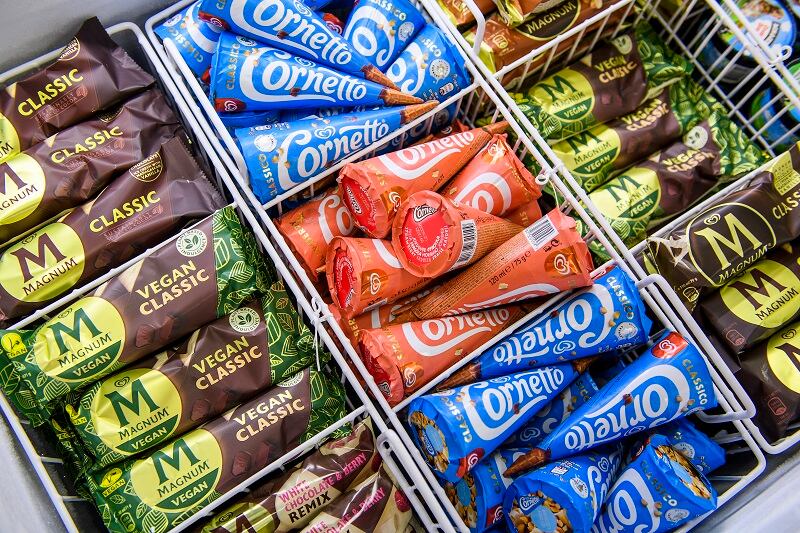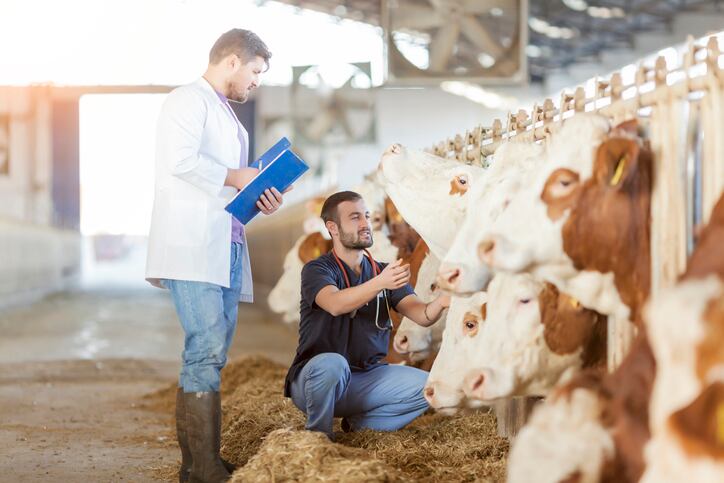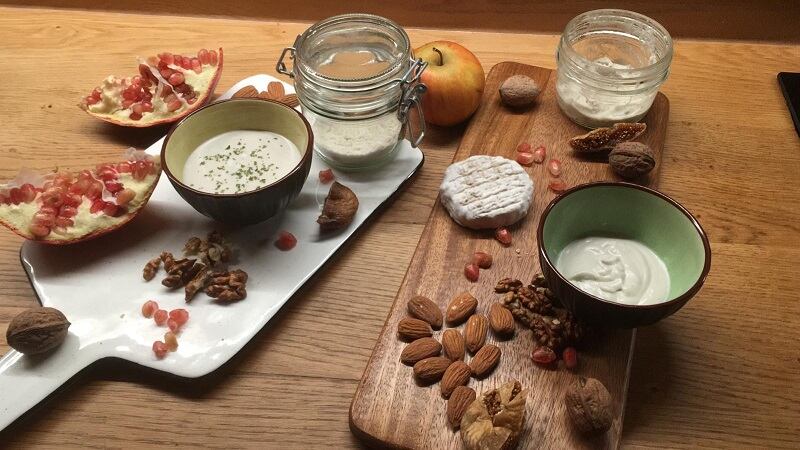Journalists visiting its global R&D centre at Colworth Science Park in the UK, dubbed the ‘spiritual home of ice cream’, heard that ice cream contributes to 20% of Unilever's GHG emissions. Roughly half of that comes from its near three million ice cream cabinets, which it leases out to sellers worldwide.
The FMCG giant has a commitment to be net zero across its value chain by 2039. It has therefore hatched a plan to roll out energy saving freezer cabinets. It has launched two trials – one which has already ended in Germany; with a second pilot to follow in Indonesia next year, with an aim of reducing energy use and greenhouse gas emissions by around 20-30% per freezer.
With a current industry standard in many markets of -18°C, Unilever’s ambition is to move the temperature of its retail sales freezers to -12°C to improve energy efficiency and reduce greenhouse gas emissions, in a move which it hopes will drive industry-wide change.
These trials, it explained, are the first step in exploring and understanding the product performance of Unilever’s ice cream and the energy consumption of freezers at warmer -12°C temperatures, in real life conditions. Once in the cold chain, Unilever’s freezers tend to last over 10 years. It’s hoped the warmer fridges will last longer.
Unilever Ice Cream Chief R&D Officer Andrew Sztehlo said the company has been working for close to 20 years on a number of angles to make its freezers more energy efficient. “The first thing we started in 2008 was changing from non-greenhouse gas friendly fridges to hydrocarbons. Now 90% of our cabinets in the market are better refrigerants and we buy new cabinets every year. At the same time, we've also been working on designing those cabinets to make them so that they use less energy. They now use over 40% less energy than 2008. In the last 3-4 years we've been working on warming our products up.”
Matt Close, President Ice Cream, Unilever said: “These pilots will provide valuable information on how much energy we can save and how our ice cream products perform in warmer freezers to ensure we deliver the same great-tasting ice cream. We’re actively seeking to collaborate with partners from across the ice cream and frozen food sectors to drive industry-wide change, so the collective positive impact is far greater.”
Ice creams need redeveloping to bear the warmer fridges
But there’s a catch. To ensure the same ice cream quality and consumer experience, products need to be reformulated to withstand higher temperatures.
“We've been working on the microstructure and the matrix to get better structures at warmer temperatures so that we can bring this plan together and ultimately result in less energy,” revealed Sztehlo.
The market trial in Germany yelled an energy reduction of 24%. “The product still sold,” he said. “The quality was still there.”
The company will also need others to do the same, if, say, a retailer stocks non-Unilever ice creams in a newer -12°C fridge.
It is hoped that other ice cream manufacturers will follow its reformulation efforts.
"We'd like to work in partnership with the industry,” said Close. “We're really open to how we do that together rather than it being Unilever-specific... but it's early days.”

Rising consumer interest in sustainability has already led to Unilever’s vegan ice cream range which now makes up more than 10% of its sales. It has also been experimenting with regenerative agricultural practices to limit the environmental impact of its dairy herd.
Initiatives include introducing innovative feed additives to reduce the generation of methane as cows digest their food and putting manure through digesters and separators to reduce methane emissions and create resources such as energy and fertilizer.
The energy-saving freezer plan has been long in the making. But Close added it is a timely initiative that will strike a chord with both Unilever’s retail clients and end consumers.
“We've done a lot of work and we know exactly what's the right claim from a consumer attractiveness point of view from a lower energy cabinet,” he said. “People are really worried about energy usage and our retailers are too. Our shop keepers are worried about turning the cabinets on. We like them to turn the cabinets on early in the season and the signals they are sending us at the moment are that they are worried about the price of energy."




